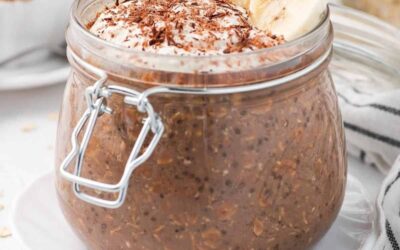
As the seasons change, so can our mood. Seasonal Affective Disorder (SAD), a type of depression related to changes in seasons, notably in winter, affects many individuals. Emerging research highlights a fascinating link between our gut health and mental well-being, including conditions like SAD. This blog delves into the intricacies of this connection and explores natural ways to mitigate SAD’s impact.
What is Seasonal Affective Disorder (SAD)?
SAD is more than just “winter blues.” It’s a subtype of depression that occurs at a specific time of year, usually in winter. Symptoms can include persistent low mood, lethargy, and loss of interest in usual activities. The reduced daylight in winter is a key factor, influencing our circadian rhythms and hormone balance.
Gut and Depression: The Hidden Link
The gut-brain axis, a communication network between your gut and brain, plays a pivotal role in mood regulation. An imbalance in gut bacteria can affect this communication, potentially leading to mood disorders like depression and SAD.
Unraveling the Root Cause of SAD
While the exact cause of SAD is still under study, it’s widely believed that the lack of sunlight in winter months disrupts our biological clock and reduces serotonin levels, a mood-lifting neurotransmitter often produced in the gut.
Natural Treatments for SAD
- Light Therapy: Mimicking natural light to regulate your circadian rhythm.
- Nutrition: A gut-friendly diet rich in vitamins, minerals, and probiotics can bolster mental health.
- Exercise: Regular physical activity can boost serotonin levels.
Vitamin D’s Role in Combating SAD
Vitamin D, often dubbed the “sunshine vitamin,” is crucial for mood regulation and is linked to SAD. Supplementation can be beneficial, especially in countries with limited winter sunlight.
Can SAD Be Prevented?
While there’s no guaranteed way to prevent SAD, maintaining a healthy gut through diet and lifestyle choices can be a significant defense. Staying active and ensuring exposure to natural light whenever possible are also key strategies.
Common Causes of SAD
The most prevalent cause of SAD is the reduced exposure to sunlight during shorter winter days, impacting hormones that regulate mood and sleep.
Recognizing SAD Symptoms
Symptoms of SAD can range from feelings of despair, lack of energy, difficulty concentrating, to changes in sleep patterns and appetite. Understanding these symptoms is the first step in seeking appropriate treatment.
Balancing gut health could be a cornerstone in managing SAD. A healthy gut not only improves digestion but also supports mental health, offering a natural pathway to combat the challenges of SAD. If you’re struggling with symptoms of SAD and wish to explore how gut health can play a role in your recovery, visit my Work With Me page for more information. Moreover, if you feel the need for a personalized approach to tackle SAD, book a call with me for a detailed consultation.
BeatTheBlues #GutHealth #SAD #MentalWellness #Food4Life GutBrainConnection #SeasonalWellness #MentalHealth #Food4LifeCoaching



